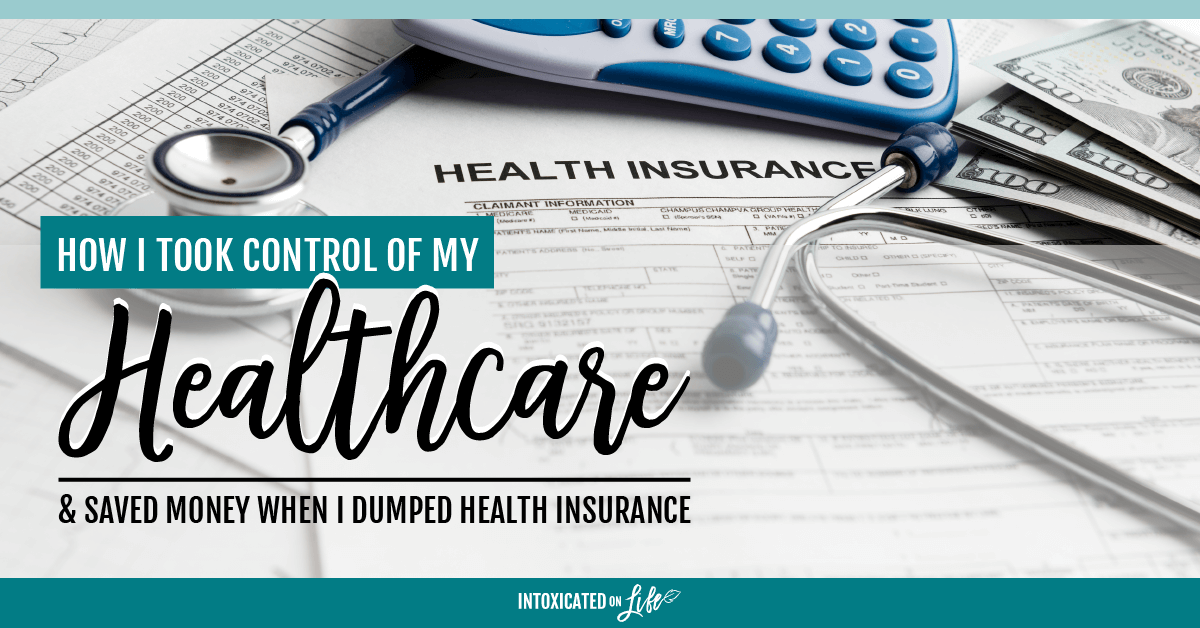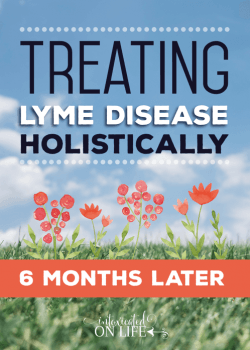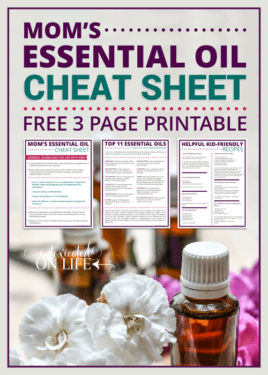Have you ever heard of health sharing? Here’s the details on how I took control of my healthcare and saved money when I dumped insurance.
As I browsed the options in the online health insurance marketplace, I shook my head. “How do normal families afford health insurance? This is ridiculous,” I thought to myself. 😳
It was the fall of 2015, and my husband and I were seriously considering whether he would leave his job so we could be self-employed full time.
But making this transition, meant figuring out how to fit health insurance into our budget…or so we thought…
Health Sharing: An Alternative to Health Insurance
I’m not gonna lie: I was pretty discouraged while I was crunching the numbers. It seemed like everything was lining up perfectly for Luke to quit his job—except the insurance.
To get a plan with an $8,000 family deductible would cost us nearly $1,300 per month (and MUCH more in today’s market). That means I’d need to budget about $2,000 per month for health care expenses. Plus, there’s all the things that insurance won’t cover, which I estimated would make the health care portion of our budget more like $2,250 per month.
sigh
I decided to whine about it crowdsource. I hopped onto facebook and talked to some full-time work-at-home families. Were there other options I wasn’t seeing?
That’s when I was introduced health sharing plans—and unlike most of my insurance insurance experience, people were actually happy with the care they were getting.
The three health sharing ministries I initially heard about and investigated were Christian Healthcare Ministries, MediShare, and Samaritan Ministries (and there are several others out there).
After a lot of research and comparison of the three, we landed on Samaritan Ministries.
How Do Health Sharing Plans Work?
Health sharing networks usually operate about the same way. Individuals voluntarily pool their money to cover health expenses that rise above a certain amount of money.
Samaritan has a few distinctives, and since we’ve been with them for over five years now. We’ve had a number of crazy life happenings that have required sharing (I had a 4-wheeler accident that landed me in the hospital, we learned how sharing happens during pregnancy, and several other accidents and illnesses along the way).
Needless to say, we’re quite familiar with how the process works when you’re part of their Classic program (they currently have a couple of different programs — but this is the one we’ve been a part of since the beginning).
How I pay into the health sharing plan system…
- Each month I receive a newsletter (which has awesome articles in it) along with a note telling me who to send my monthly share to and what their medical situation is—so I know how to pray for them. (As a side, note if you want Samaritan to not publish the exact nature of the health issue, they will do that too.)
- I send my share directly to that person either via check or PayPal. There is no middle man taking a cut of the check.
- One month of each year, my share is sent directly to the Samaritan office. This pays for the administrative costs and staff salaries for running the organization.
What happens with medical needs as part of Samaritan Ministries health sharing…
- Medical incidents below $400, I take care of myself.
- When we have a medical need exceeding $400, I’m responsible for the first $400. The rest I submit to the Samaritan community for reimbursement up to $250,000 — unless you’re part of the Save-to-Share program then bills greater than that can be shared (more on that in the FAQ below). I can do this super easily with my online account, but you can still do this through good ole’ snail mail if you prefer .
- Since I’m considered a “self-pay” patient (I pay the doctors directly), many times I’m automatically given a big fat discount. If I’m not automatically given a discount I ALWAYS contact the provider asking if they ask for self-pay discounts because one easy phone call saves the entire network money. This usually results in anywhere from a 25%-80% discount (and once I had an over $14,000 ER bill completely waived by the hospital 😲).
- Samaritan reviews the need and makes sure it meets their guidelines. They then assign other members to send their shares to us to cover that need.
- As we receive shares, we login to our online portal and mark that they were received. This helps us and Samaritan Ministries keep track of shares received in case they need to follow up with a family. Alternatively, this can be done on a paper checklist that Samaritan sends you too, but I don’t need any extra paper in my life 😆.
- If bills continue to come in for a specific incident, we just login and submit those bills as we receive them, and Samaritan assigns them to members to share.
If you choose Samaritan Ministries for health sharing, would you consider using our name as a referral “Steven and Trisha Gilkerson”? We’ll receive credit toward our share and if you love Samaritan as much as we do, you can refer your friends!
Things I Love about Health Sharing with Samaritan
Health insurance is depressing.
Premiums seem to skyrocket every. single. year.
Super high deductibles seem to the the norm.
Coverage always seems to go down.
And then there are limitations on doctors you can see—especially if you’re interested in doctors that don’t just follow the standard shove-a-pill-down-your-throat-to-cover-up-the-symptoms mentality.
But health sharing is the antithesis of everything I despise about the American way of doing health insurance. While we were a bit nervous jumping in, I have nothing but positive things to say about Samaritan.
1. Better, more personalized care through health sharing.
I love that I’m in control of the doctors and hospitals I use.
My primary doctor doesn’t take health insurance. He stopped accepting insurance a several years ago because insurance wasn’t allowing him to treat patients as best he could.
I chose him because he’s an integrative doctor who uses the best of what western medicine has to offer along with the use of supplements, herbs, homeopathics, and other alternative treatments. His goal isn’t covering symptoms, but getting to the cause of problems and treating them. (You can see why insurance wouldn’t like him.)
Not only can I see the doctors I want, but I can use treatment decisions that are best for my family—including the use of chiropractor care, acupuncture, homeopathy, herbal treatments, and more. Samaritan Ministries recognizes that often alternative treatments are not only less expensive, but can be more effective than conventional treatments—this benefits the entire network!
2. Amazing customer service at Samaritan Ministries.
Have you ever had to call an insurance company? Talking to an insurance company over the phone feels like Luke Skywalker trying to chat with people in the Death Star: you’re pretty sure that whoever you bump into will either be a robot or a brainwashed human totally unable to help you.
When we had traditional insurance, calling to dispute an issue or get clarification always involved pushing a million buttons to get to the right department, only to have to wait in line for 45 minutes before I get to talk to a person. And then the person doesn’t have the authority to help you, so they have to escalate the problem, or transfer you to another person. And half the time your issue doesn’t ever get resolved on that phone anyhow (it took over 3 years to get the bills for the birth of my first born son covered with the health insurance I had at the time — true story!).
Yeah. None of that with Samaritan. It’s the opposite. You get a real live (and might I say, extremely kind) human being on the phone or online chat very quickly. They answer questions quickly and simply. They even pray for you when the call is over. I’ve never had anything but an extraordinarily pleasant experience.
3. Major savings through Samaritan Ministries health sharing.
Samaritan Ministries classic program currently costs us $530 per month for our family. I budget another $175/month towards health expenses in case we have to take someone to the doctor and it doesn’t exceed that $400 threshold. That means, our health care budget is $705/month total.
This budget has proven to actually be more than we’ve needed since we infrequently run to the doctor for things. We actually have money stock-piled in our “medical needs” fund in case we do have a particularly needy time in the future.
I’ve not looked at the cost of health insurance for our family in quite a while, but based on what I’ve seen this is likely about 1/4 of what we’d be budgeting if we would have gone the health insurance route. By my estimates, this comes out to nearly $25,000 saved per year on health care!
Our experience with Samaritan Ministries health sharing
We’ve had several pretty significant health needs since being a part of Samaritan. Before I felt comfortable sharing about Samaritan Ministries and recommending them to you, I felt like I really needed to experience what it was like to deal with a major medical need. Here are just a few of the needs the Samaritan community has helped share in our needs…
Well, now I can confidently recommend Samaritan. Here’s what life has brought us…
1. Heart monitoring
One of our twins was complaining repeatedly that his “heart hurt.” I took him to our pediatrician who ran some basic tests and then referred us to a pediatric cardiologist. The cardiologist ran a number of more extensive tests and had him wear a heart monitor for 30 days. (By the way, heart monitors aren’t so fun for rambunctious 6-year-olds…or their parents.)
Thankfully, everything came out normal. But as you can imagine, this was not a cheap medical need.
2. 4-Wheeler accident
On Mother’s Day 2017, I had my parents and brother’s family over for an evening picnic. My brother brought his 4-wheelers over. I went out for a quick ride (nothing rambunctious mind-you). Long story short, I flipped it over and it landed square on my upper abdomen. Thankfully, I survived the accident and got out with just a lacerated liver (and lots of pain).
But I had a few new experiences that day. I got my first ride in an ambulance. I had my first stay in the Intensive Care Unit. And since then, I’ve seen bills so high it made the heart monitoring look like pennies.
3. Pregnancy
I’ve had 2 pregnancies (and a few miscarriages) that that Samaritan has shared the expenses with me. You can read more about our experience with using Samaritan Ministries for my first pregnancy here. Now mind you, I don’t seem to have easy painless pregnancies that are cheap 😞.
Because I have a history of pre-term labor, c-sections, and deal with hyperemesis which all complicate things and add extra expenses. With the first pregnancy that was shared with our Samaritan community I was able to have an unmedicated VBAC which kept delivery costs down some.
With my current pregnancy, we’ve had some complications with lots and lots of extra monitoring and doctor’s visits with my primary OB as well as a Maternal and Fetal Medicine specialist (not cheap). We’re praying for another uneventful VBAC — however with the current state of things I know a c-section is very possible and it’s likely our little one will have a NICU stay as well. However, I’m not worried about our expenses being covered…
Thus far, every single one of the needs above (plus others) have been met in full. We’ve had zero problems submitting our bills, getting them approved, and receiving funds from other members. It’s been an easy process, and I especially love that I can do it all online!
If you choose Samaritan Ministries for health sharing, would you consider using our name as a referral “Steven and Trisha Gilkerson”? We’ll receive credit toward our share and if you love Samaritan as much as we do, you can refer your friends!
Frequent Questions about Samaritan Ministries Health Sharing
I’ve pretty much become a total Samaritan Ministries fan-girl. I tell everyone I know how much our family has loved our experience with them, but I get a lot of the same questions. So, I know you probably have some of these questions too…
Are you afraid people won’t send their checks to you? Have you had trouble getting checks from other members?
It’s something I’d thought about previously, but we’ve not had any problems with receiving shares so far (and we’ve received quite a lot of them). We have had to report a couple of shares not received by their due date and Samaritan Ministries then has to contact the sender and get it to us shortly thereafter.
While I was at first hesitant that Samaritan required you to send shares directly to individuals and not to a central office for redistribution, as I researched I actually learned this is a benefit to their system.
Not only do I get super sweet notes of encouragement with my share checks, this covers Samaritan’s legal butt. The government may decide at some point that the companies who collect and redistribute the money act an awful lot like insurance. Whereas, Samaritan Ministries is clearly a peer-to-peer health sharing program.
Do you have to pay any penalties, since you don’t have insurance?
As a participant of Samaritan Ministries, we’re exempt from the Affordable (haha) Care Act mandate that requires we hold health insurance. We don’t pay any penalties for not having insurance.
What if I don’t have enough cash to cover a large bill prior to getting my shares?
We have run into this experience when we had very large medical bills coming in. For these large bills, I simply called the hospital and asked if they would allow me to make payments for a few months until I received enough shares that I could pay it in full. They were very accommodating and asked me to set my own monthly payment. There were no fees or interest associated with this.
Since Samaritan caps need sharing at $250,000 per need, what if something happens where a need exceeds that amount?
Samaritan has an optional program called “Save to Share.” We’ve opted to participate in this program where members share in needs that exceed that $250,000 amount. While we hope we never have to utilize it ourselves, we know anything is possible and want to be on the safe side.
To participate in Save to Share you are required (if you have a family of 3+) to set aside an extra $399 annually. You’re only asked to contribute part of this when/if another individual in the Save to Share program has a need exceeding $250,000.
What about preexisting conditions?
Many of you know that I was diagnosed with Lyme disease a few years ago. One of my initial, big concerns was that Samaritan does not cover preexisting conditions. Everyone else in my family is very healthy, so it was just me that was the problem-child. 😜
I realized, as it related to my Lyme diagnosis, it would make little difference in the cost of my treatment. I opted to go to a doctor to treat my Lyme that didn’t participate in insurance (I don’t personally know of any good Lyme doctors that take insurance). And because I have opted to use alternative treatments (they’ve been remarkably effective), none of my treatments have been covered by insurance anyway.
That said, I called and spoke with Samaritan for quite a while about my pre-existing condition prior to signing up. They encouraged me to submit any of the bills I might incur for Lyme to their “Special Prayer Needs.”
Individuals who have needs that are outside the normal parameters of sharing, either because they’re preexisting or things outside the guidelines for sharing— like dental surgery, can submit their bills to “Special Prayer Needs.” Many members donate to this fund, and these needs are covered.
While I did submit a few bills towards the beginning of our time with Samaritan and had them mostly covered, I’ve not submitted any bills for several years to the special prayer needs. My Lyme is what I’d consider, in remission and I’ve not needed any treatment in several years.
More Questions About Samaritan Ministries Health Sharing?
Be sure to check out the FAQ section or guidelines on Samaritan’s site, or give them a call—I promise, they’re super nice! 🙂
And again, we’d be very appreciative if you used our name (Steven and Trisha Gilkerson) as a referral, if you decide to go with Samaritan Ministries.
If you choose Samaritan Ministries for health sharing, would you consider using our name as a referral “Steven and Trisha Gilkerson”? We’ll receive credit toward our share and if you love Samaritan as much as we do, you can refer your friends!












Does it include any dental or vision coverage? How has that part gone for your family?
It does not cover dental or vision. We just pay out of pocket for dental and Luke is the only one who currently needs vision and we just cover that out of pocket too. We looked into dental insurance, but what we found really wouldn’t save us money. That said, if you have a major dental issue that creates a financial hardship, Samaritan does encourage you to submit it as a “special need.”
The Conservative Mennonites and Amish have been doing something like this for decades
I had no idea you were expecting! Or perhaps you have delivered ? At any rate, what a wonderful blessing !
In our case my husband has insurance but it’s not that great. We discovered there is a local chiropractor who takes his HSA (Health Savings Account) so we ask the employer to put what they can there. We have a more naturally minded doctor now but for less cost. It helps for most day to day things ….. And we have educated ourselves on keeping healthy .
Sometimes there are creative ways that God provides for us. And he always provides !!!!
Hi Genet,
Haven’t had the baby yet, still expecting (currently 30 weeks) :).
That’s great to hear you’ve been able to find a good option for your healthcare that saves you money!
Perfect timing, we just signed up for MediShare. I’m not sure how this works or if it’s anything like Samaritan but I am excited to find out.
Thanks for confirming my good decision.
Hi Cherish,
I looked into MediShare prior to signing up with SMI, it is very similar in how it works but each of the major health sharing options have some unique things about it. I hope it works out well for you!
We are also self-employed and joined Samaritan Ministries Health Sharing almost 2 years ago. I agree with everything you said plus I feel good each month as I write our checks to send to other members.
I know! I love knowing that almost all of the money I pay each year goes DIRECTLY to other members and that SMI is not a big top-heavy organization. And the months when they reduce our shares…how cool is that? I’ve never had an insurance company tell me I could pay less when there were less needs 🙂
My family became members of Samaritan Ministries International 7 1/2 years ago, and we have had no regrets! At that time there were about 14,000 member households. Now there are close to 70,000! We had a couple small needs through the years, but this year we have encountered a really large need. Our 11 year old daughter was diagnosed with a Wilms tumor in July. She has had chemotherapy, a major surgery, and radiation treatments. She is doing well…just 5 more chemo treatments and we will be through this valley.
When she was first diagnosed, our church and others around us started to react to the financial pressure they assumed we would be under. There were offers of a special offering, fund-raisers, and personal donations to pay for her required care. While we were very appreciative of this support, we did not want to take advantage of our daughter’s disease for personal gain. We were able to say confidently that this would be no problem for us financially, as Samaritan would cover the costs. We were met with disbelief, and I attribute this to the experiences most people have with insurance. If we were still in the insurance system, I have no doubt that we would have needed financial help to cover deductibles, co-pays, etc. But with SMI I am convinced that this need will be completely covered. We had negotiated a 60% discount with our health care system before her diagnosis, so bills are lower than they would be with insurance, and the Samaritan system has been working perfectly for us, praise the Lord! We have had other things to be concerned about, and don’t need financial pressure as well!
Our experiences have matched yours when interacting with SMI personnel. They are always warm, concerned, polite, and helpful. It truly is a pleasure working with them.
Thanks for your article…you covered it well!
Thank you for sharing your experiences! While I haven’t liked that we’ve had several incidents this year, it’s been wonderful to see how God has provided through SMI for all of our needs.
Praying the remainder of your daughter’s treatment goes well and she gets a clean bill of health soon.
Thank you SO MUCH for this post!!! You’ve addressed many of our concerns. Except one: HOW do you negotiate with the medical services? We receive statements showing the “cost”, portion discounted due to insurance company’s negotiated rate, the portion paid by the insurance company, and then finally the remaining amount we owe. An x-ray may be $100, minus insurance company’s discount of $30, minus insurance payment of $56 (or $0 if we haven’t met $3000 deductible), leaving us with $14 (or $70) to pay. But then, we receive a bill for the radiologist who interpreted the X-ray. Etc. And finding out how much something will cost BEFOREHAND is next to impossible. “We won’t know until the procedure is completed,” is the standard reply.
Long way to ask the question, but will the service providers really give a discount similar to what they give insurance companies? And how do you handle when one procedure/operation involves five different entities (clinic, specialist, anesthesiologist, lab work, etc.) which all bill you separately? Do you call each one and negotiate? Thank you for your practical help!
You’re very welcome! I’ve actually found “negotiating” to be fairly simple. It’s as easy as placing a call and telling the billing center that you’re self pay and ask if they can offer any kind of discount. 9 times out of 10, they do. And actually, sometimes the self-pay discount is reflected right on the bill without even asking.
Here’s a couple of our real-world examples. With my last pregnancy, we were with Samaritan. The total in bills was $26,709 — the negotiated amount came out to $15,596 (I use the term negotiate loosely because that’s just me asking if the provider offers a self-pay discount). The only out-of-pocket expense I had was for my Doula. Samaritan will pay up to $500, and then I had to cover the other $250. If I wouldn’t have had a doula, I’d have had no out of pocket expenses for that pregnancy. NONE! I’ve never had a baby with no out of pocket expenses before.
Another more recent need we had. My husband was having some pain we were concerned about (ended up being a pulled muscle that just took longer than normal to heal – wouldn’t have even gone to the doctor if we suspected that). But he was referred to a specialist about it before we knew what was going on. The total amount of the bills came out to $4756 for doctors visits and labs. The total amount we were actually billed came out to $1411 (again, just from making a couple calls when we weren’t automatically given a discount). And again, this was covered 100%.
In fact, each of our needs has been covered 100% because we’ve been able to get over $500 in discounts for each need.
Hope that helps 🙂
We had Liberty Healthshare, but I had a horrible experience. It took me 9 months to be reimbursed for health expenses, and I had to call tens of times to make that happen. They assured me I only had to pay a certain about for prenatal labs I’d had done, and their adjustment company would take care of the rest. I did everything I needed to do on my end, including sending them the balance bill I received (as they told me to do if I got one). Most recently, I’ve now received a bill from collections because they never did take care of the balance like they said they would.
I don’t have health insurance, and don’t plan on getting it. But I don’t think I’ll ever mess with health shares again.
I’m so sorry to hear of your bad experience with Liberty! One of the things we did prior to signing up with Samaritan was talk to a number of people who had used them (and other health sharing programs too) to find out ACTUAL real-life experiences. I’m glad I did that, because there are definitely some that do not have a good reputation unfortunately.